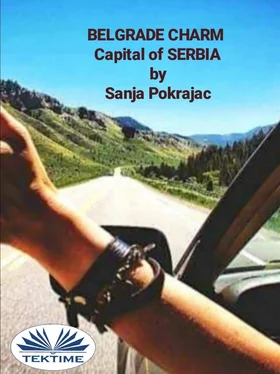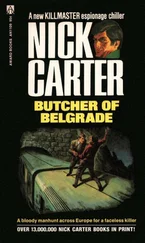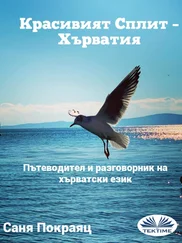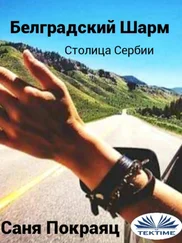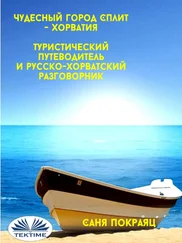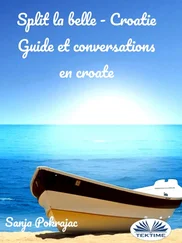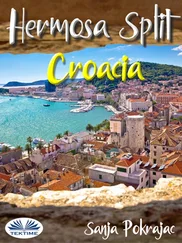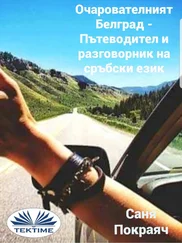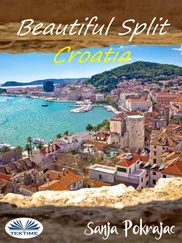Sanja Pokrajac
Belgrade Charm
Sanja Pokrajac
Belgrade charm -capital of Serbia
Guide and Conversations in Serbian
Translated by : Fatima Immacolata Pretta
Copyright © 2020 Sanja Pokrajac
The Serbian capital is situated between the two rivers, the Sava and the Danube and is one of the most fascinating and most visited cities in Eastern Europe. It attracts many tourists from all over the world for the immense hospitality of the Serbian people, for the excellent homemade gastronomy that it offers, for its historical architecture, sacred art and of course for the nonstop entertainment. The vitality of this city is truly extraordinary. Passing by the most famous Belgrade street, Кнез МихајловаKnez Mihajlova (Knes Mihàilova) where there are museums, exhibitions and cultural centres, or Скадарлија-Skadarlija with Bohemian charm (Skadarlia) full of taverns and restaurants with live music, You will be followed by the brass band, saxophones, violins and contrabasses playing the cheerful Balkan folk, or a band playing jazz, blues, classical or rock music. A true fusion of music, spoken world languages and people of all ages dancing and having fun until dawn everywhere. On the Sava river there are a lot of underground clubs, some really trendy and all made on rafts called splavovi, where all night long you can dance to the rhythm of rock, techno, folk or pop music. The bathing part is located on the Sava River peninsula, which is called Ада Циганлија-Ada Ciganlija (Adda Zigànlia) where fun is guaranteed in all seasons. Don’t miss the Belgrade Fortress (Калемегдан-Kalemègdan) and its open air exhibitions. It takes a whole day to get to know its entire history. You will see underground Roman wells, the church Ружица-Ružica (Rùjiza), casemates, other underground rooms and a collection that for 70 years now has been attracting tourists who come to see tanks
and heavy artillery exhibits. The zoo mosaic is also a must. They are mosaics made mostly with glass and stones on the Kalemegdan wall by Belgrade university students. It represents a gallery of 440 mosaics of all the animals in the world. Теразије-Terazije (Teràsie) Street is the heart of Belgrade, and if you find yourself at number 20 and hear the notes of the piano, go and taste the famous Москва шнит-Moskva šnit (Mosskva shnit) cake made of cream, almonds, sour cherries and pineapple, the trademark of the historic and beautiful Москва-Moskva (Mosskva) Hotel. In Tašmajdan Park, Ташмајдан (Tashmàidan) is the Church of St. Mark and the Temple of the Three Saints, also called the Russian Church in memory of the many Russian immigrants in Belgrade after the October Revolution. To explore the historic cave Ресава-Resava (Ressava) in the village of Јеловац (Ielovaz). Crypt of the Temple of St. Sava – Храм Светог Саве -Hram Svetog Save (Hram Ssvetogh Ssave) needs no words. The Historical Museum of Yugoslavia is specially built by the city of Belgrade to give the birthday present to the Yugoslav President Tito. On Крунска-Krunska Street, 51 is the interactive museum of Nikola Tesla-Никола Тесла with the urn and the collection of posthumous masks of the great Serbian scientist. Don’t miss the Гардош кула-Gardoš kula (Ghardosh kula), the built tower of the four monumental towers celebrating 1000 years of the Hungarian state and the old Zemun-Земун, Semun, a Habsburg land, the largest of 17 Belgrade municipalities. The most popular urban nightlife of pop, jazz and blues music can be found in the complex of clubs built in the former beer factory on Цетињска-Cetinjska Street, 15 (Zetignska). The Serbian people are a mild and hospitable people. The religion is predominantly Orthodox Christian. The currency of the country is the Serbian dinar (RSD). Urban transport is well organized and taxi service is not too expensive. For those who want to stop for some reason in Belgrade, you can also find apartments near the centre at low cost. To always have internet, just buy a Serbian card.
Many Serbian restaurants offer a wide selection of spirits made in their cellars. Serbs are well known for their plum brandy, шљивовица-šljivovica (scglìvoviza), brandy, лозовача-lozovača (lòsovacia), pears, виљамовка-viljamovka (vìgliamovka), apples, јабуковача-jabukovača (iàbukovacia), herbal schnapps, траварица-travarica (tràvariza), quince, дуњевача-dunjevača (dùgnevacia), apricot, кајсијевача-kajsijevača (kàisievacia) and many others. There are also many excellent wines such as Merlot, Sauvignon, Cabernet, Morava, Tamjanika (Tamiànica), Regent, etc., made by local wineries. Serbian specialties are mostly BBQ meat such as mixed meat consisting of ribs, skewers, cold cuts, hamburgers and the famous ćevapi-cievapi (meatballs in flat bread) and кајмак-kajmak (kàimak), a creamy cheese famous in Serbia. The steak from Карађорђе-Karadjordje (Kàragiorgie) of veal is delicious. Winter dish is the famous сарма-sàrma (meat rolls in cabbage leaf), or meat-filled peppers, boiled shank cooked with spices, beans with pork ribs, ђувеч-djuveč (giùveci) or pork with baked vegetables, fish soup, fried fish, ajvar (aìvar), the very famous pepper sauce, pita (pitta) which is puff pastry filled with cheese (famous гибаница-gibanica-ghibàniza), pitta with meat (бурек-burek), pitta with vegetables (зељаница-zeljanica – segliàniza), or pitta with apples (јабуковача-jabukovača -iàbukovacia). Туршија – Turšija (tùrscia) is a salad and is a mixture of sour vegetables. Баклава-Baklàva is a cake made with nuts in the puff pastry. And to digest, it can be followed with a nice шприцер-špricer (shprizer) made of white wine and soda. In almost all restaurants there are also Italian dishes that are very popular in Serbia.
The official writing in Serbia is the Serbian Cyrillic alphabet consisting of 30 letters:
A,A (А)
Б,B (B)
В,V (V)
Г,G (GH)
Д,D (D)
Ђ, Đ (GI)
Е,E (E)
Ж,Ž (J)
З,Z (S)
И,I (I)
Ј,J (J)
К,K (K)
Л,L (L)
Љ,Lj (GLI)
M,M (M)
Н,N (N)
Њ,Nj (GN)
О,O (O)
П,P (P)
Р,R (R)
С,S (SS)
Т,T (T)
Ћ,Ć (CI)
У,U (U)
Ф,F (F)
Х,H(H)
Ц,C (Z)
Ч,Č (CI)
Џ,Dž (GI)
Ш,Š(SH)
Although Cyrillic is the official writing, Latin characters are quite common in Serbia.
GREETINGS /ПОЗДРАВИ POZDRAVI/ POSDRAVI
Welcome/Добро дошли/Dobro došli/ Dobro dòscli
To health/ Наздравље/Nazdravlje/ Nàsdravglie
Good morning / Dobar dan/ Добар дан/
Dobar dan Goodbye /Довиђења / Doviđenja / Dovigiègna
Have a good trip / Срећан пут / Srećan put/ Srècian put
CONVERSATIONS/РАЗГОВОРИ/ RAZGOVORI/RASGHOVORI
How are you? Како сте? Kako ste? Kakko ste?
Well, thank you, and you? Хвала, добро, а Ви? Hvala, dobro, a Vi? Hvala, dobro, a Vi?
Do you understand me? Разумете ли ме? Razumete li me? Rasùmete li me?
I understand everything /Све разумем / Sve razumem / Sve rasùmem.
Do you speak English or Serbian? /Говорите ли енглески или српски ? / Govorite li engleski ili srpski? / Ghòvorite li èngleski ili ssrpski?
Yes, I speak a little Serbian / Да, говорим мало српски / Da, govorim malo srpski / Da, ghòvorim malo ssrpski.
Читать дальше
